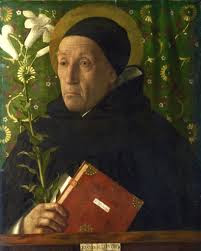You are the light of the world. A city set on a mountain
cannot be hidden. Nor do they light a lamp and then put it under a bushel
basket; it is set on a lampstand, where it gives light to all in the house. Just so, your light must shine before others, that they
may see your good deeds and glorify your heavenly Father.
Which of us, knowing the truth
of who we are, feels really comfortable hearing Jesus’ words, “You are the light
of the world.”? But he has noticed the glimmer of our desire, the flicker of our lovingkindness,
the incipience of our compassion; and he assures us, it is enough, we are
enough, enough to light the way for him, for God’s people; for he will make the
flickering into a blaze of light.
Where does Christ’s light come from? For Saint Bernard it is clear. The
light shines out most all from Jesus’ wounds. The light is his mercy, his
compassion expressed perfectly through his passion. This
is what he says, “The man who said: 'My sin is too great to deserve pardon,' was wrong. As for me, I take whatever I lack from the heart of the Lord which
overflows with mercy. They pierced his hands and feet and opened his side with a
spear. Through the openings of these wounds, I can suck honey from the rock. I
can taste and see that the Lord is good. The lance pierced his soul and his
heart, so that he might be able to feel compassion for me in my weaknesses.
Through these sacred wounds we can see the secret of his heart, the great
mystery of his love and mercy. Where have your love, your mercy, your
compassion shone out more luminously than in your wounds, sweet, gentle Lord of
mercy.”*
The light we are called to be
is always reflected, refracted light from the wounded, mercy-filled Christ
Jesus whose open heart and wounds blaze with light of his compassion. We are
called, invited more and more into a becoming that is cooperative. It’s not
about us. We have only to be transparent, reflective, compassionately
vulnerable, then we will be light in him.
Saint Bernard, On the Song of Songs, 6i.
15the words of today’s Gospel are part
of the Sermon on the Mount, and they come right after the Beatitudes. These are
words spoken to the anawim of
Galilee, those lowly and insignificant who look to God for everything. These
are the ones who follow Jesus around, and hang on his words. They have
experienced that life isn’t fair; they don’t expect their rights to be
respected. They have nothing; and they are nothing. These live on the fringes
of power and prestige. The world pays no attention to them, because they can’t
be exploited for anything. Their one
advantage- they desperately know their need for God. Is this who we are,
who we are meant to be?
Which of us, knowing the truth of who we
are, feels really comfortable hearing Jesus’ words, “You are the light of the
world.”? I want to respond, “Excuse me, my Lord, you’ve got the wrong party.
Try a couple of cells down the hall. I’m not light; it is you who are my light.
I’m a mess; it’s pretty dark in here.” But Jesus insists, “Yes, you are light.”
He has noticed the glimmer of our desire, the flicker of our lovingkindness,
the incipience of our compassion; and he assures us, it is enough, we are
enough, enough to light the way for him, for God’s people; for he will make the
flickering into a blaze of light.
Where
does Christ’s light come from? For Bernard it is clear. The light shines out
most all from Jesus’ wounds. The light is his mercy, his compassion expressed
perfectly through his passion. This is what he says, “The man who said: “My sin is
too great to deserve pardon,” was wrong…As for me, I take whatever I lack from
the heart of the Lord which overflows with mercy…They pierced his hands and
feet and opened his side with a spear. Through the openings of these wounds, I
can suck honey from the rock…I can taste and see that the Lord is good…The
lance pierced his soul and…his heart, so that he might be able to feel
compassion for me in my weaknesses. Through these sacred wounds we can see the
secret of his heart, the great mystery of his love…and mercy. Where have your
love, your mercy, your compassion shone out more luminously than in your
wounds, sweet, gentle Lord of mercy.”
The burden is on God; for the light we are
called to be is always reflected, refracted light from the wounded,
mercy-filled Christ Jesus whose open heart and wounds blaze with light of his
compassion. We are called, invited more and more into a becoming that is
cooperative. It’s not about us. We have only to be transparent, reflective,
compassionately vulnerable, then we will be light in him.























